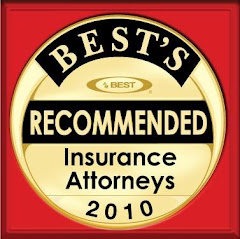Federal Circuit Court Finds Employment Discrimination Settlement Lacking Medicare Details Binding, Leaving Parties Unprotected from MSP Viewpoint
By Settlement Solutions, February 12, 2015 2:59 pm
On February 11, 2015, the United States Court of Appeals for the Second Circuit published its opinion on Hoover v. New York State Department of Corrections and Community Supervision, Albion Correctional Facility, Sue Wojcinski, Sandra Durfee, Angie Maume, and Donna Baker, finding that if defendants considered plaintiff’s Medicare status to be critical in deciding whether to settle, they should have ascertained that status before agreeing to settle the case on November 5, 2012 for $750,000. As a result, the court affirmed the judgment of the district court, which had previously directed that judgment be entered in favor of plaintiff in the amount of $750,000 when the parties were unable to agree on the exact Medicare language in the settlement documentation.
Plaintiff commenced this employment discrimination action on November 21, 2002. After several motions for summary judgment, and several changes in attorneys, at a conference on July 9, 2012, the court scheduled jury selection and trial to commence on November 7, 2012. On the morning of November 5, 2012, two days before the trial was scheduled to commence, counsel telephoned the judge’s chambers to report that the parties had reached a settlement. That afternoon, the material terms of that settlement were placed on the record. At that time, defendants’ attorney indicated he had offered and the plaintiff had accepted $750,000 total inclusive of damages, costs and fees to settle. Defense counsel also indicated he had advised plaintiff counsel that because of new Medicare and Medicaid laws, there would be some documents that would be forthcoming to determine how to word the stipulation.
On the record, the judge asked whether the dismissal of the claims would be with prejudice in return for the payment of the settlement amount, and both counsel agreed. The judge further asked counsel to confirm the material terms of the settlement, and that although documentation needed to be executed to confirm the settlement, that the settlement would be effective November 5, 2012, notwithstanding any additional documentation which needs to be executed. Both counsel agreed. As a result, the court issued an order that same day indicating that because a settlement had been reached, the material terms of which were placed on the record, the jury trial scheduled to commence on November 7, 2012 was cancelled, as the parties would file an executed stipulation of dismissal.
After spending the better part of a year attempting to finalize the language of the settlement documentation, the parties reached an impasse. Defendants then asked the court to compel plaintiff to execute their settlement agreement, and plaintiff asked the court to compel defendants to execute her version.
On October 16, 2013, the United States District Court for the Western District of New York published its decision denying both motions and concluding instead that if the parties had not executed settlement documentation by November 8, 2013, the court would entertain a motion to enforce the settlement.
Defendants insisted that plaintiff either provide a physician’s letter stating that she would not require further treatment, or else agree to a Medicare Set-Aside (MSA), whereby a certain amount of the settlement proceeds would be set aside to pay for future medical payments, in order to protect the parties against any potential liability to Medicare. The court however ultimately found that although defendants could have conditioned the settlement on plaintiff’s providing a physician’s letter or agreeing to a MSA, they did not do so. If defendants considered plaintiff’s Medicare status to be critical in deciding whether to settle, they should have ascertained that status before agreeing that the settlement was effective as of November 5, 2012. The court therefore ordered that if the parties had not executed settlement documentation by November 8, 2013, the court would entertain a motion to enforce the settlement.
When the parties were unable to agree on the exact language of the settlement documentation, the court directed that judgment be entered in favor of plaintiff in the amount of $750,000. The State appealed that decision. On appeal here, the Circuit Court reiterates the fact that the parties expressed a clear intent to settle and placed the material terms of their settlement on the record, with neither party making any express reservation to be bound only by writing. As a result, the court agrees with the magistrate judge that “although defendants could have conditioned the settlement on plaintiff’s providing a physician’s letter or agreeing to a Medicare set-aside, they did not do so.” “If defendants considered plaintiff’s Medicare status to be critical in deciding whether to settle, they should have ascertained that status before agreeing that the settlement was effective as of November 5, 2012.” The court therefore affirms the judgment of the district court.
We have all seen work comp and auto cases with MSP issues. And it is no longer unusual to read about medical malpractice or products liability cases with MSP issues. This however may be the first federal employment discrimination case dealing with MSP issues. More so however, this is yet another example of how waiting too long to prepare to protect Medicare’s interests in any type of settlement can end up affecting your agreement, provide you with unclear or unwanted language, or even worse, leave you unprotected from an MSP perspective. Over the last five years, there have been numerous state and federal cases concluding that despite Medicare’s guidance in workers compensation cases, and lack thereof in liability cases, courts will not disturb parties’ agreement to settle, even if it is clear both parties may be leaving the courtroom without appropriately taking Medicare’s interests into consideration. If you have questions concerning
settling your Connecticut workers comp claim, call us at 860-523-8783.












